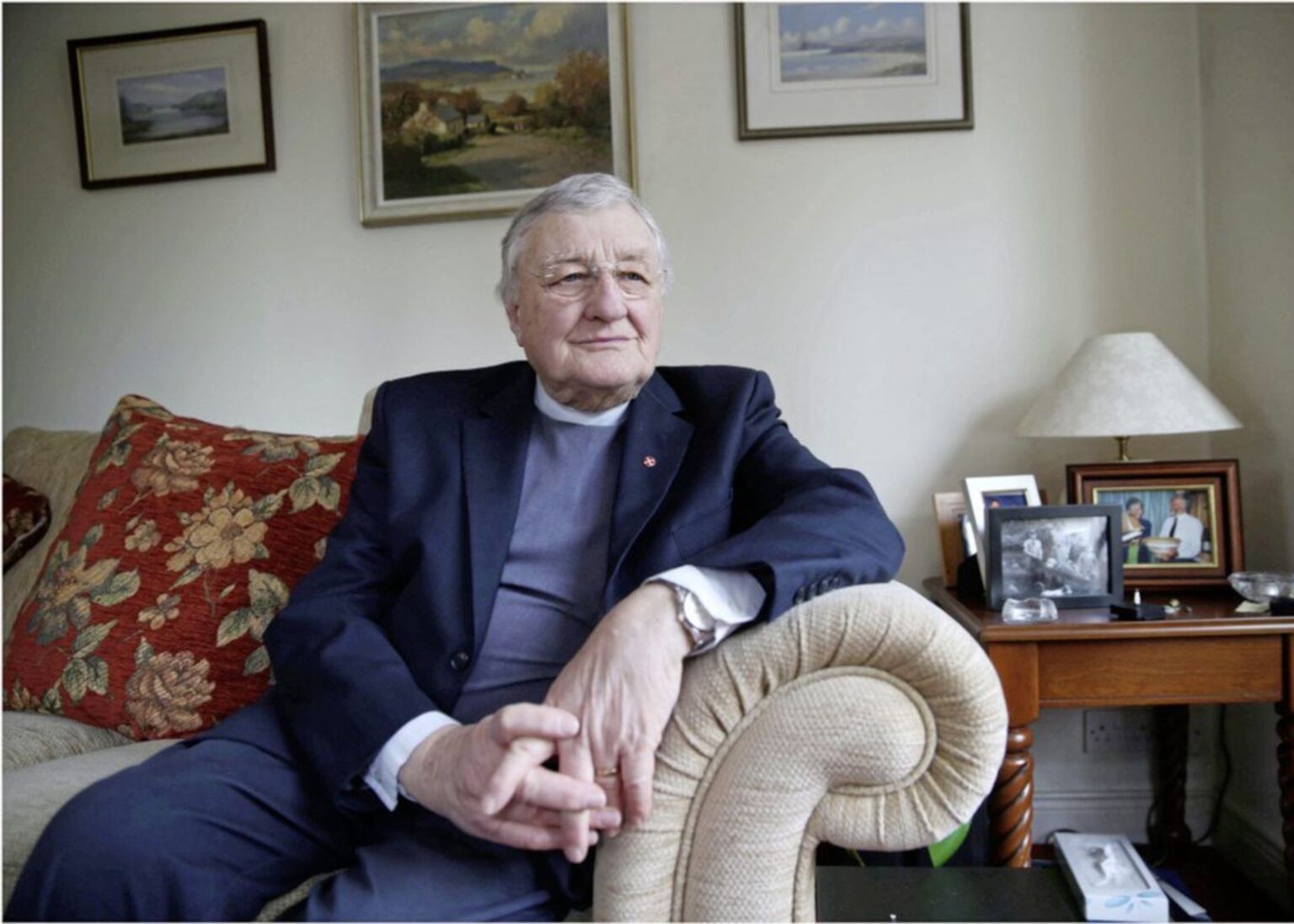A Life of Reconciliation and Reflection
For over four decades, Rev Harold Good has spent his summers in a modest mobile home nestled along the rugged coast of Ballycastle. From this peaceful vantage point, he watches the sea as it crashes against the rocks, a scene that mirrors the tumultuous history of the region. Yet, for Rev Good, there is a deep sense of calm and purpose in his life’s work.
His approach to life has always been guided by the principles of “talk, truth, trust.” This mantra has helped him navigate through the challenges of a divided society, acting as a bridge-builder in times of conflict. His demeanor may be dignified, but it is underpinned by an inner determination. As he says, “I just did and said what I thought was right.” This conviction has not always been met with approval from all corners of his community, but he never wavered in his stance.
Faith has been a cornerstone of his strength, particularly the teachings of Charles Wesley, who emphasized the importance of being friends with all and enemies of none. Rev Good’s role as a former president of the Methodist Church in Ireland placed him at the center of significant historical events, including his involvement as one of two independent witnesses to the decommissioning of IRA weapons in 2005. This moment was pivotal in the continuation of Sinn Féin’s participation in the Stormont Executive.
Following the release of his memoir In Good Time, written with Martin O’Brien, much attention has focused on his role during the decommissioning process, his connections with political figures, and the secret meetings held during that time. However, his journey extends far beyond these events. His ministry took him to Waterford, where he met his wife, Clodagh, and later to the United States, where he ministered to a black congregation following the murder of Martin Luther King Jr.
Back in Belfast in the 1960s, he advised young loyalists, including the infamous Shankill Butchers, against violence. Years later, he would meet them again during a prison visit. His story intertwines with those of prominent figures like Martin McGuinness and Ian Paisley, and in interviews, he emphasizes the need for continued dialogue in shaping a new Ireland.
Rev Good believes that unionism must acknowledge the changing realities of the region. He advocates for an honest attempt to understand each other’s problems, fears, and hurt. It was McGuinness who first approached him about the decommissioning process, and their relationship, though unexpected, was marked by mutual respect and affection.
He also credits Ian Paisley for his role in the peace process, while acknowledging the challenges posed by his tendency to tell people what they wanted to hear. Despite differences, Rev Good chose not to condemn, recognizing that condemnation had not brought progress in the past.
The call to witness the decommissioning of weapons was a testament to the trust Rev Good had built over the years. His wife encouraged him to take part, seeing it as a completion of his lifelong mission. Born in Derry in 1937, Rev Good grew up in a family deeply rooted in Methodism, influenced by the ecumenical beliefs of his father, Rev RJ Good, a former president of the church in Ireland.
His early experiences in Bessbrook exposed him to the underlying divisions between communities, leading to a deeper understanding of the complexities of Northern Irish society. In the U.S., he encountered racial discrimination, drawing parallels between racism and sectarianism. These experiences shaped his views on reconciliation and inclusivity.
Returning to Ireland in 1968, he found himself in the midst of the Troubles, where he played a crucial role in supporting Catholic families affected by violence. Throughout his career, his faith remained a source of strength, inspired by John Wesley’s message of unity.
Twenty years after witnessing the decommissioning of weapons, Rev Good remains concerned about the future. While he does not foresee a return to physical violence, he worries about stagnation and the failure to move forward. He calls for a re-examination of historical covenants, such as the one proposed by JB Armour in 1912, and urges all sides to engage in more honest conversations.
He believes that the path forward should not be one-sided, emphasizing the need for mutual understanding and acknowledgment of shared history. As he reflects on his life’s work, Rev Good continues to advocate for a more inclusive and reconciled Ireland.







